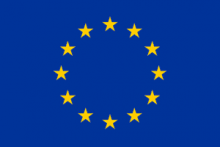4 May 2020
Prosumers for energy inclusiveness: leaving no-one behind
What will a desirable energy future look like for prosumers?
The production of renewable energy is on the rise in Europe. A big role is reserved for ‘energy citizens’, who could generate up to 45% of the European Unions’ electricity needs by 2050—out of which 37% could be produced by collective projects and energy cooperatives. Individuals and collectives are no longer mere consumers of energy, today many already produce renewable energy and actively engage in energy markets – they have become prosumers.
Exploring the future of prosumerism for energy inclusiveness means exploring the tensions between two main directions: will the future of prosumerism be inclusive or will it be for the privileged? Which side of the spectrum becomes dominant depends on key societal conditions, such as infrastructural, political, or technocratic factors, the degree of complexity of prosumer-related bureaucracy, as well as pricing (dis)incentives and subsidy schemes. In addition, socio-economic and cultural factors such as the prosumer initiative participants' socio-economic status, his/her financial means, gender, social capital, as well as his/her 'energy literacy', will determine to a considerable extent who participates in prosumer initiatives and how.
Direction: Inclusive energy future
This scenario envisages collectives, whether public or private, that engage in the production and consumption of energy while taking the public interest as their leading motivation. They ensure that, beyond a narrower circle of initiators and shareholders, a wider community benefits from the activities. Diversity in the composition of (advisory) board and executive committees are actively encouraged, just as (community) members are empowered to participate and share skills and expertise. There is commitment to democratic decision-making and the voices of the lesser heard are encouraged and amplified. Everyone is deemed worthy of benefitting from the solutions.
Direction: An energy future for the privileged
In this scenario, individuals or collectives are primarily interested in their own and/or mutual interest, which forms the starting point for redistributing benefits among themselves. They generally have the financial means, expertise, and social/professional networks that facilitate their venture into prosumerism. When forming alliances, they are meant for mutual convenience, serving as an extension of self-interest: to have access to secure, affordable, and renewable energy supply. The mainstreaming of privileged prosumerism could very well skew the market for a happy few that can afford it, while prices, perhaps even the access to prosumption itself, become prohibitive for all others.
Tensions within and between the two models of prosumerism
The two directions may appear as extreme opposites. However, inclusiveness remains an elusive dimension of our energy systems. Just as a privileged system may create safeguards to avoid energy poverty, albeit in a top-down manner, an apparently inclusive system can have a number of hidden pitfalls that weaken its intentions.
While inclusiveness is a guiding principle in many civic or public-led collective initiatives, from an energy system perspective, it begs the question whether these initiatives may unwittingly be perpetuating some of the exclusionary and privileging tendencies of today’s societies, especially in the largely unregulated niche of prosumerism. They may favour participants of a certain gender and of sufficient financial means, as well as participants that have the expertise and time to be more closely involved in decision-making. Cooperatives are after all private organisations that are free to open their objectives to the general public but may also focus exclusively on the narrower circle of their members.
Finding a future that works
The possible futures for prosumerism will in reality lie somewhere between the two extremes presented here. For example, municipalities are stepping up as guarantors of a more inclusive energy future. Prosumer collectives join forces to network and lobby together for their own inclusion in energy systems. Even though current societal conditions are favouring more exclusive forms of prosumerism and energy futures, initiatives are stepping up in a growing movement for more energy justice.
Those issues were the focus of the second in a series of four e-workshops organised by PROSEU project partners ClientEarth and eco-union on 29 April 2020. You can find the programme and all the presentations of this and the first workshop on Prosumer Business Models, which took place on 25 March 2020, here.
The third e-workshop will discuss "Future energy systems: Prosumer islands or a new IoT community?" and take place on 24 June 2020 using Zoom.
The fourth e-workshop, synthesising the results and roadmaps developed during the previous meetings, will take place at the end of October 2020.
Image copyright: Graphic recording of e-workshop on Prosumers for Energy Inclusiveness by "Carlotta Cataldi"













